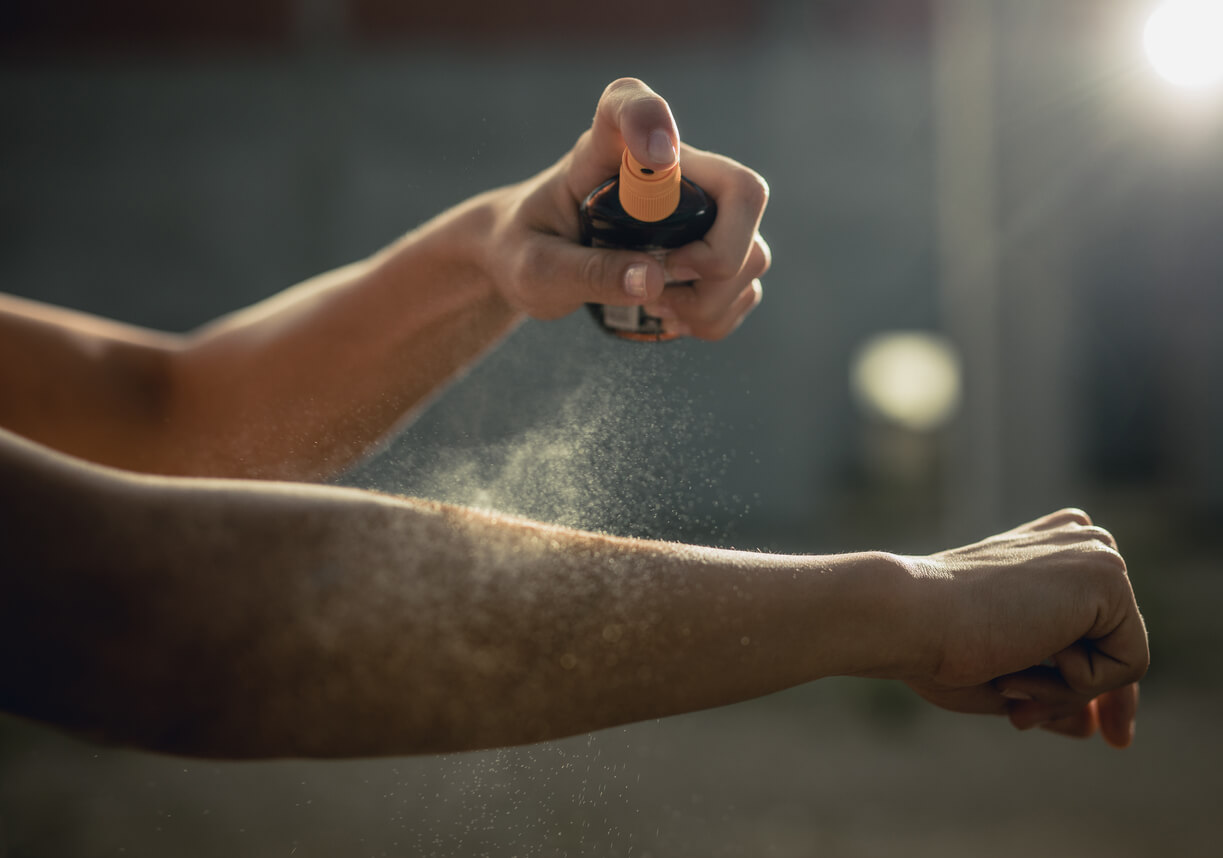J&J Recalls Neutrogena, Aveeno Sunscreens over Potential Cancer Concerns
Editors carefully fact-check all Drugwatch.com content for accuracy and quality.
Drugwatch.com has a stringent fact-checking process. It starts with our strict sourcing guidelines.
We only gather information from credible sources. This includes peer-reviewed medical journals, reputable media outlets, government reports, court records and interviews with qualified experts.

Healthcare giant Johnson & Johnson recalled some Aveeno and Neutrogena aerosol sunscreens after lab testing found low levels of benzene, a chemical known to cause cancer.
Benzene isn’t a typical ingredient in sunscreens, but “out of an abundance of caution, we are recalling all lots of these specific aerosol sunscreen products,” the company said in a July 14, 2021 recall announcement. J&J said it is still investigating how the contamination happened.
While benzene is a known human carcinogen, J&J and Neutrogena say that the levels found in their products shouldn’t pose a health risk.
“Daily exposure to benzene in these sunscreen products at the levels detected in internal testing would not be expected to cause adverse health consequences,” Neutrogena said in a statement.
Products affected by the July 2021 recall include:
- Neutrogena Beach Defense aerosol sunscreen
- Neutrogena Cool Dry Sport aerosol sunscreen
- Neutrogena Invisible Daily defense aerosol sunscreen
- Neutrogena Ultra Sheer aerosol sunscreen
- Aveeno Protect + Refresh aerosol sunscreen
J&J told consumers that they should stop using the recalled products. For information on the recall or to get a refund consumers may contact the JJCI Consumer Care Center by calling 1-800-458-1673. Neutrogena also has refund claim forms on their site.
Neutrogena’s website recommends that consumers contact health care providers if they have concerns or are experiencing health problems. Consumers can report health problems from recalled products to the FDA’s Medwatch reporting program.
WHO Classifies Benzene as a Known Human Carcinogen
According to the World Health Organization, benzene is a Group 1 carcinogen. Evidence has shown it can cause cancer in humans. It’s a colorless, flammable chemical used to make pesticides, plastics, rubber, synthetic fibers and detergent. Researchers have also found the chemical in some e-cigarette liquids.
Long-term exposure to the chemical may cause several types of cancer, including leukemia and non-Hodgkin lymphoma, according to the American Cancer Society.
Signs and symptoms of benzene exposure include:
- Dizziness
- Headaches
- Vomiting
- Rapid heartbeat
- Death (at very high levels)
People diagnosed with cancer because of exposure to the chemical carcinogen have filed benzene lawsuits against companies including: Shell Oil, BP and U.S. Steel.
Pharmacy Detected Benzene in Sunscreen Products
The online pharmacy Valisure discovered benzene in several sunscreen products, including Neutrogena and Aveeno, after routine testing. The pharmacy reported its findings to the FDA in a citizen petition. The skin absorbs sunscreen ingredients at “over 400 times the threshold for systemic carcinogenicity,” according to Valisure’s citizen petition.
Previously, Valisure alerted the FDA after it discovered high levels of N-Nitrosodimethylamine (NDMA), another potential carcinogen, in samples of the popular heartburn drug Zantac (ranitidine). After it conducted its own testing, FDA requested that manufacturers remove all ranitidine products from the market.
Following the market withdrawal, hundreds of people diagnosed with cancer after taking the heartburn drug filed Zantac lawsuits against Sanofi, the drug’s maker.
After seeing the petition, J&J “immediately began a comprehensive end-to-end investigation of our manufacturing process and raw materials, including internal testing and a thorough data review,” the company told the Washington Post.
Researchers Ask FDA to Pull More Sunscreens from the Market, Including Coppertone and Banana Boat
In August 2021, researchers from the nonprofit Haereticus Environmental Laboratory asked the FDA to pull additional sunscreen brands from the market, including Coppertone and Banana Boat.
The group said that sunscreens that contain octocrylene may contain benzophenone, a chemical that can interfere with reproductive organs and hormones as well as potentially cause cancer.
“The FDA doesn’t know what their safety is and it’s unconscionable that the FDA would allow something that we don’t know if it’s safe or not,” Craig Downs, executive director of Haereticus Environmental Laboratory told Bloomberg.
So far, WHO hasn’t gotten sufficient data to say octocrylene causes cancer in humans. The FDA hasn’t issued a safety communication about these additional sunscreens.
An FDA spokeswoman told Bloomberg that the agency “takes seriously any safety concerns raised about products we regulate, including sunscreen,” and that it would “continue to monitor the sunscreen marketplace to help ensure the availability of safe sunscreens for U.S. consumers.”